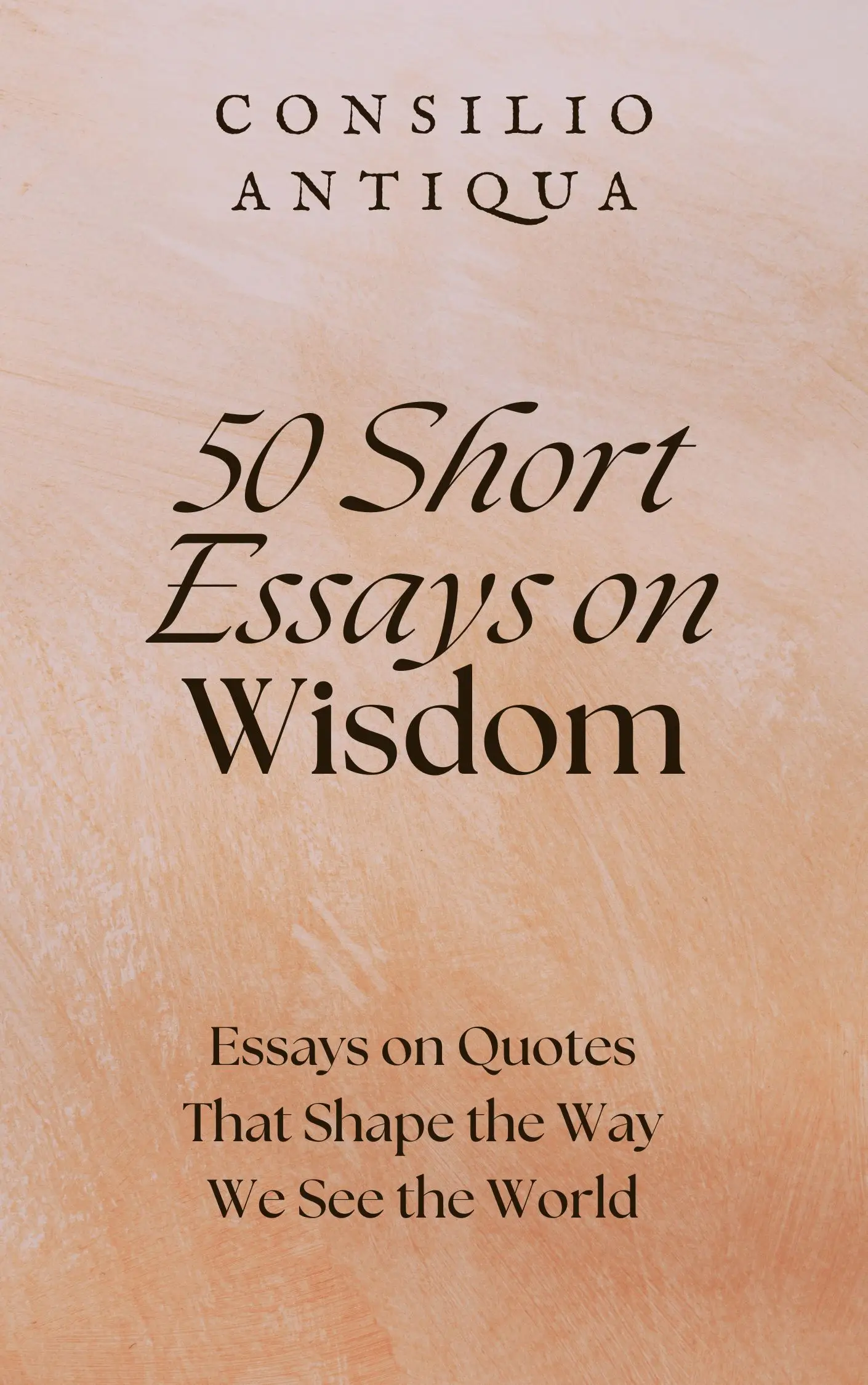
50 Short Essays on Wisdom | Finding Solace in the River of Time
Finding Solace in the River of Time
"This too shall pass." - Persian Adage
The old woman sat on the worn stoop, her gaze fixed on the relentless churn of the river. The water, a relentless, shimmering ribbon of silver, mirrored the ceaseless flow of time itself. Her wrinkled hands, gnarled like ancient olive branches, held a single wilted rose. This too shall pass, she murmured, a mantra whispered on the wind. This essay explores the enduring wisdom of this simple phrase, tracing its historical roots and examining its profound relevance to the complexities of modern life.
The origins of "This too shall pass" are shrouded in the mists of time, echoing through Persian poetry and Sufi teachings for centuries. It's a sentiment deeply embedded in the cyclical understanding of life prevalent in many ancient cultures. The ephemeral nature of existence, the constant flux between joy and sorrow, prosperity and hardship – these were not seen as anomalies, but as the very fabric of reality. Thinkers like Rumi, with his profound insights into the human heart, used this understanding to guide his followers towards acceptance and spiritual growth. The phrase wasn't merely a platitude; it was a cornerstone of a philosophy that embraced the impermanence of all things.
At its core, "This too shall pass" is a recognition of impermanence. It's not a denial of suffering, but an acknowledgement of its transient nature. It's a gentle reminder that even the deepest sorrows, the most agonizing pains, will eventually fade, like the last rays of sunset bleeding into twilight. The wisdom lies not in ignoring the harsh realities of life, but in understanding that they are not permanent fixtures. This understanding allows us to navigate life's storms with a newfound resilience, knowing that the tempest, however fierce, will eventually subside. The phrase offers a quiet strength, a refuge in the face of adversity.
In our fast-paced, achievement-oriented world, this ancient wisdom offers a powerful antidote to the pervasive anxiety of our time. The relentless pressure to succeed, the constant barrage of information, the ever-present fear of missing out – these contribute to a pervasive sense of unease. Yet, when confronted with setbacks – a lost job, a failed relationship, a personal tragedy – the understanding that "this too shall pass" can provide a lifeline. It allows us to step back from the immediate pain, to see the situation within the larger context of time, and to find a quiet strength in the knowledge that this moment, however difficult, will not last forever. Consider the young entrepreneur whose startup fails; the grieving widow who loses her husband; the artist whose work is rejected. Each experiences profound pain, yet the underlying truth remains: this too shall pass.
The challenge lies in cultivating the patience to weather the storm. It requires a conscious effort to shift our perspective, to move beyond the immediate pain and to see the larger arc of our lives. It demands a willingness to embrace the ebb and flow of existence, to accept the inevitable ups and downs as integral parts of the human experience. This is not a passive acceptance, but an active engagement with life's challenges, a recognition that even in the darkest of nights, the sun will eventually rise again.
This ancient wisdom whispers to us, a quiet solace in the face of life's inevitable storms. It invites us to consider: What moments in your life have felt insurmountable, yet eventually passed? What lessons have you learned from those experiences? How can you cultivate a deeper understanding of impermanence to navigate future challenges with greater resilience and grace? The river flows on, carrying with it both joy and sorrow, but the river itself endures. And so shall we. This too shall pass.
